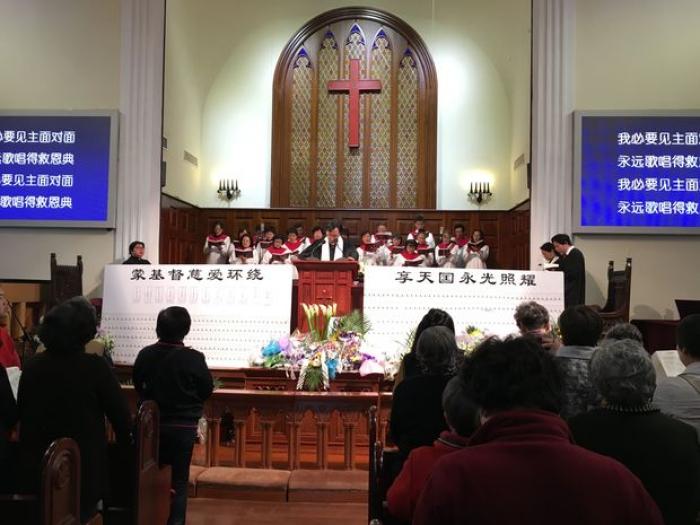On March 31, 2016, Young John Allen Memorial Church holds a collective memorial service and over 300 believers attend it, Shanghai.
Flowers like calla lilies, lilies were put on the church lectern and believers brought yellow crysanthemum, red roses and gerbera to honor their relatives.
One co-worker of the church tells CCD that the church began to prepare for the memorial service almost a month ago and told the congregation to register and write down the names of their departed family members used for the memory cards.
The attendants are senior Christians who remember their deceased spouse or the middle-aged believers who pay tribute to their parents. They honor the dead people with the hope "seeing them again" in the heaven.
A large percentage of churches preside "memorial services", responding to how Christians honor descendants on the Pure Brightness Festival or Qingming, also known as Tomb Sweeping Day.
They share the faith of those who's passed away, present bouquets and prayers in cemeteries without kneeling down to worship ancestors, burning incense and offering fruits.
Besides, churches in Beijing held the memorial services last April and Christians in Guangxi swept the tombs of the expired pastor last year.
Young John Allen (January 3, 1836 - May 30, 1907) was an American Methodist missionary in late Qing Dynasty China with the American Southern Methodist Episcopal Mission. He is best known in China by his local name Lin Lezhi (林乐知).
Allen's most influential work was in the field of education, as he worked at a government school before founding the Anglo-Chinese College in Shanghai. He was also a strong force in educating women at a time when that was very radical for Confucian society. His efforts helped to found the McTyeire School for girls. Allen also published several newspapers and magazines as a form of both evangelism and education, which influenced many Chinese reformers of the Self-Strengthening Movement and prompted philosophical discussions comparing Christianity and Confucianism. His publications were popular among many Chinese for their attention to Western concepts of international relations, economics and the natural sciences.










